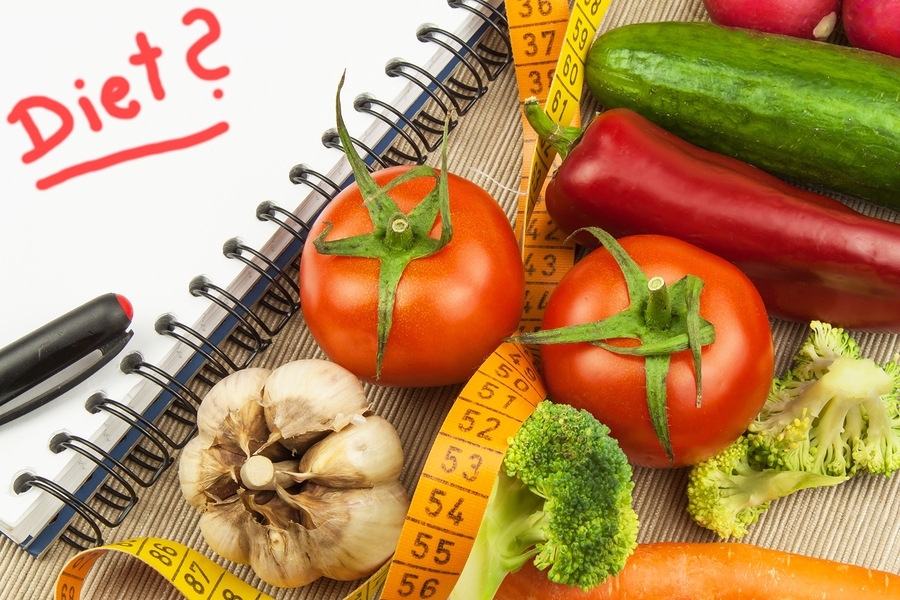How to practise a safe and gentle January diet
Try these simple and easy-to-adopt tips for a healthier start to the year, says Liz Connor.
Another January has arrived in the blink of an eye, which means it’s time to roll out the hackneyed saying: “New Year, New You”.
This time of year wills many of us to cut out the booze, scale back on our favourite foods and take up a fad diet in the hope it might help shift those extra pounds gained over the Christmas period. But extreme weight loss methods – like juicing, fasting or skipping meals – can deprive your body of important vitamins and minerals, not to mention provide a miserable way to start the year.
Thankfully, you don’t have to go on hunger strike to make next year a healthier one. Here, registered dietitian Laura Tilt (tiltnutrition.co.uk) shares her fail-safe tips for gently easing yourself into a January health kick.
Start with a food diary

Keep track of your calories
“It takes effort, but it works. Not only does the act of writing down what you eat increase awareness, resulting in fewer calories consumed, but it will also help you uncover the habits you need to change. A study from the Kaiser Permanente Centre for Health Research found dieters who kept a food diary lost twice as much weight as those who kept no record.”
Swap breakfast cereal for eggs
“They may not look unhealthy, but many breakfast cereals are high in sugar and low in fibre. Scientists at the Pennington Biomedical Research Centre found overweight adults who swapped ready-to-eat cereal for eggs felt fuller and went on to eat fewer calories at lunch. This is all thanks to the brilliant protein content in eggs, which switches off hunger hormones for longer.”
Rearrange your fridge

Organising your fridge can help
“Research shows you’re three times more likely to eat healthy food if it’s at eye level, so increase your chances of sticking to healthy habits by rearranging your fridge. Pile fruits, vegetables and other healthy foods at the front so you’re less tempted to reach for the naughty stuff.
“The office is full of sweet and calorific temptations too; if you sit at a desk with a biscuit tin close by, chances are you’ll be dipping in there at some point. The obvious solution? Move temptation out of sight – donate biscuits, sweets and chocolates to others and move any sweet treats out of your eyeline.”
Train with weights
“Cardio is great for burning calories, but the best type of training for staying lean in the long-term is resistance or strength training. This is basically any type of exercise where you work with weights or your own body weight – think push ups, squats and lunges. The more muscle you have on your body, the more calories you’ll burn, even at rest.”
Say bye to booze

“Sure, we all love a drink every now and again, but the long-term effects on your health aren’t pleasant. Happily, you can see improvements in as little as a month if you ditch the alcohol. In one small study led by a team at New Scientist, 10 staff members (who drank regularly) abstained from drinking alcohol for an entire month. After 28 days, each person reported improvements in liver fat, cholesterol levels and blood sugar. Their sleep quality also rose by 10%, while each lost an average of 1.5 kilos.”
Remember: calories matter
“Whether it’s low-carb or low-fat, diets ultimately work because they cut calorie intake. Give yourself a calorie target and you’ll be more likely to succeed. Work out your daily needs using an online calorie calculator, like MyFitnessPal, and then track your intake using a smartphone app.”
Cut liquid calories
“Calories from juice, smoothies and lattes are easily forgotten but quickly add up. Liquid calories don’t satiate in the same way as solids, and studies show we rarely compensate for the calories consumed in sugary drinks by eating less during the day.”
Half fill your plate with vegetables
“Instead of making half your dinner plate pasta, rice or other carbs, half fill with vegetables and take carbs to a quarter. Studies show it’s the amount of food we eat, not the calories, that determines satiety.”
Walk before dinner
“Go for a stroll before dinner and you could end up eating less. Research from the University of Glasgow found a 20-minute walk before a meal was enough to meaningfully reduce appetite.”
When you eat, eat
“Most of us combine eating with other activities like scrolling through emails, working, chatting on the phone or watching TV. What happens when we do this? We eat more and feel less satisfied after eating. Turning off devices and tuning in when you eat helps you reconnect with your hunger and satiety – two important regulatory systems for reaching and staying at a healthy body size.
“Give yourself the challenge of eating without distraction at least once a day, and you’ll soon find you feel more satisfied with each meal.”
The Press Association
Latest posts by The Press Association (see all)
- 6 foods that are great for your heart health - April 8, 2025
- Award-winning actors to star in Second World War film released for VE Day - April 8, 2025
- King Charles and Queen Camilla release official 20th wedding anniversary photographs - April 7, 2025
- The 5 ways drinking alcohol can affect your body - April 7, 2025
- Why you should welcome these scary-looking critters into your garden - April 7, 2025




















